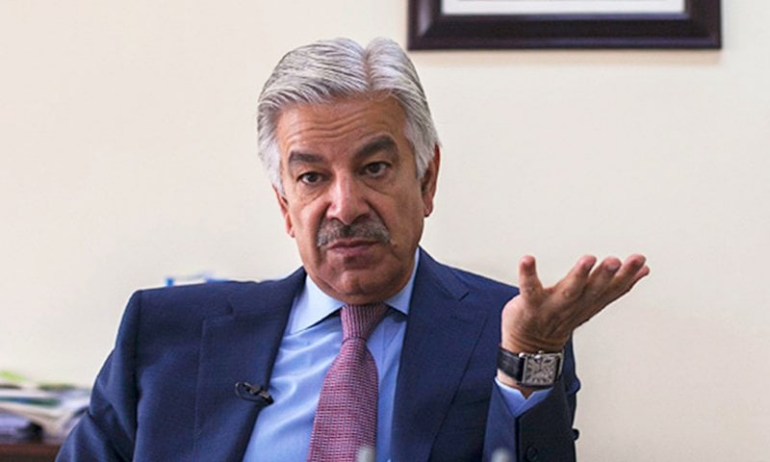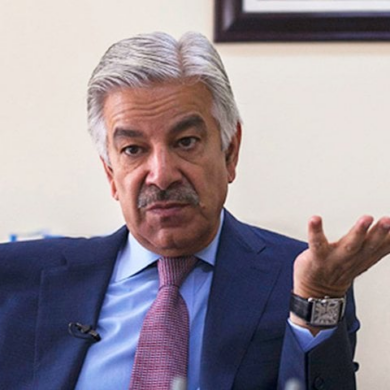Pakistan’s Defence Minister Khawaja Asif, has expressed Islamabad’s reluctance to engage in armed conflict with neighboring Afghanistan, calling the use of force only a “last resort”.
“We do not want to have an armed conflict with Afghanistan”, said Asif while speaking to a foreign news outlet.
The remarks have gained importance in the backdrop of recent military actions between the two countries.
Pakistan conducted airstrikes on March 18 targeting the Hafiz Gul Bahadur group in Afghanistan’s Khost and Paktika provinces, resulting in the deaths of eight individuals, according to Afghan authorities. The strikes were in response to the group’s attacks on Pakistani security forces in North Waziristan, which resulted in the martyrdom of seven soldiers.
In retaliation, Afghan forces utilized heavy weapons, including mortars, to target Pakistani troops along the border in Kurram and North Waziristan. However, tensions appeared to have eased on Tuesday, with both sides refraining from further hostilities except for sporadic firing at the Angoor Adda border.
Regarding the airstrikes, Minister Asif emphasized the necessity of sending a message that cross-border terrorism has reached unacceptable levels.
He underscored Pakistan’s concerns to the Afghan interim government in Kabul, stating, “We cannot continue like this.”
Asif also warned that Pakistan could consider blocking the trade corridor it provides to Afghanistan if Kabul fails to curb anti-Pakistan terrorists operating on Afghan soil.
He emphasized Pakistan’s right to cease facilitating trade if treated as an enemy by Afghanistan.
Recalling his high-level delegation’s visit to Kabul in February 2023, Asif urged the Taliban ministers not to allow the Tehreek-i-Taliban Pakistan (TTP) to initiate hostilities against Pakistan. He urged Kabul to control the TTP and prevent them from launching attacks from Afghan territory.
Expressing hope for cooperation from Afghanistan, Asif emphasized the importance of reining in the TTP to avoid further military strikes from Pakistan. He alleged that Kabul was allowing the TTP to operate against Pakistan to prevent their members from joining the Islamic State group’s local chapter, known as the IS-Khorasan chapter.
/



